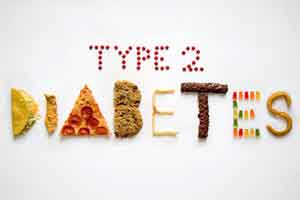- Home
- Editorial
- News
- Practice Guidelines
- Anesthesiology Guidelines
- Cancer Guidelines
- Cardiac Sciences Guidelines
- Critical Care Guidelines
- Dentistry Guidelines
- Dermatology Guidelines
- Diabetes and Endo Guidelines
- Diagnostics Guidelines
- ENT Guidelines
- Featured Practice Guidelines
- Gastroenterology Guidelines
- Geriatrics Guidelines
- Medicine Guidelines
- Nephrology Guidelines
- Neurosciences Guidelines
- Obs and Gynae Guidelines
- Ophthalmology Guidelines
- Orthopaedics Guidelines
- Paediatrics Guidelines
- Psychiatry Guidelines
- Pulmonology Guidelines
- Radiology Guidelines
- Surgery Guidelines
- Urology Guidelines
Vitamin D may increase insulin sensitivity and β-cell function in diabetes

Vitamin D supplementation may slow down metabolic deterioration in Type 2 diabetes patients, revealed a study published in the European Journal of Endocrinology.
Vitamin D deficiency is associated with impaired glucose homeostasis. Association of vitamin D supplementation with various health benefits is of particular interest in nutritional research. Prior studies demonstrated that higher serum vitamin D levels were associated with a 55% reduction in the blood sugar, a 51% decreased risk of the metabolic syndrome and a 33% lower risk of cardiovascular disease (CVD).
The present study demonstrated that high-dose vitamin D supplementation (5000 IU daily) for 6 months significantly improved peripheral insulin sensitivity and ß-cell function in individuals at high risk for diabetes or newly diagnosed type 2 diabetes (T2D).
The authors of this study assessed at baseline and 6 months: 1) primary aim: peripheral insulin sensitivity (M-value using a 2-h hyperinsulinemic-euglycemic clamp); 2) secondary aims: other insulin sensitivity (HOMA2%S, Matsuda) and insulin secretion (insulinogenic index, C-peptide area under the curve, HOMA2-B) indices using a 2h-oral glucose tolerance test (OGTT); ß-cell function (disposition index: M-value x insulinogenic index); fasting and 2-h glucose post-OGTT; HbA1c; anthropometry.
Key observation
- Treatment group vs placebo group had significantly higher vitamin D level at:
- 3 months
- 6 months
- At 6 months, the treatment group vs placebo group showed beneficial effects on:
- M value
- disposition index
- No differences were observed between the groups for changes in insulin sensitivity derived from fasting values or the oral glucose tolerance test(OGTT), anthropometric measures, blood pressure, fasting glucose, 2-hour glucose post-OGTT, and HbA1c.
- Few patients reported side effects such as gastrointestinal complaints, dizziness, anxiety, and hypoglycemia.
Summing up, the authors concluded that in individuals at high risk of diabetes or with newly diagnosed type 2 diabetes, vitamin D supplementation for 6 months significantly increased peripheral insulin sensitivity and β-cell function, suggesting that it may slow metabolic deterioration in this population.
For reference, click on the link
DOI: 10.1530/EJE-19-0156a

Disclaimer: This site is primarily intended for healthcare professionals. Any content/information on this website does not replace the advice of medical and/or health professionals and should not be construed as medical/diagnostic advice/endorsement or prescription. Use of this site is subject to our terms of use, privacy policy, advertisement policy. © 2020 Minerva Medical Treatment Pvt Ltd